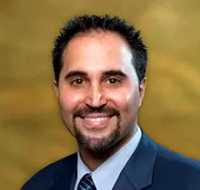
17 Sep End of Life Cancer Care: Lay Health Workers Improved Quality of Life and Reduced Costs
MedicalResearch.com Interview with:
 Richy Agajanian, M.D.
Richy Agajanian, M.D.
Chief Medical Officer and Senior Regional Director
The Oncology Institute of Hope and Innovation
MedicalResearch.com: What is the background for this study?
Response: Cancer patients and their families face status-quo treatment protocols and reimbursement models which often result in confusion and unnecessary pain and suffering in the final weeks or months of life while also causing enormous financial burden.
To help combat these issues, The Oncology Institute, in collaboration with the Stanford University School of Medicine and CareMore Health, released the study, Enhancing community capacity to deliver value-based cancer care at the end-of-life.
This study evaluated the effect of using lay health workers (LHWs), who are non-physician members of the community who have received specialized training to support patient care and navigation, on end-of-life cancer care outcomes, quality and cost.
MedicalResearch.com: What are the main findings?
Response: Presented at the 2019 ASCO Quality Care Symposium, the study found there was no difference in survival between the group that received the intervention and the control group, while the patients receiving the value-based care intervention experienced better quality based on several measures.
The value-based care group had 40 percent lower inpatient admission, 75 percent fewer emergency department visits in the last month of life, 45 percent increased hospice use, 40 percent fewer acute care facility deaths and 25 percent lower median total healthcare costs from diagnosis until death.
MedicalResearch.com: What should readers take away from your report?
Response: Our findings provide proof of concept that bringing cancer care to the community and using lay health workers is effective in addressing acute care use and total costs of care. This study is further proof that the value-based care model puts patient and family needs at the forefront of cancer care. Value-based care uses evidence-based, patient-centric protocols that deliver quality therapy, while also delivering significant cost reductions.
MedicalResearch.com: What recommendations do you have for future research as a result of this work?
Response: As the industry continues to shift towards value-based care, it’s imperative that leaders in the industry continue to prove its effectiveness. We must make sure we’re delivering integrative, compassionate care that combines strict adherence to evidence-based medicine with a comprehensive suite of services from infusion centers and pharmacy to clinical trials and end-of-life counseling.
MedicalResearch.com: Is there anything else you would like to add?
Response: Cancer care is in crisis – there is a fundamental capability gap in patient care where no one is taking full responsibility for the patients’ experience and needs, from diagnosis to end-of-life care. Specifically, the fee-for-service model is unsustainable as it incentivizes the overutilization of high-cost treatment, which results in decreased quality of life for cancer patients coupled with increased costs.
Citation:
Abstract Enhancing community capacity to deliver value-based cancer care at the end-of-life
Presented at the 2019 ASCO Quality Care Symposium
JOIN OUR EMAIL LIST
[mailpoet_form id="5"]We respect your privacy and will never share your details.
Last Modified: [last-modified]
The information on MedicalResearch.com is provided for educational purposes only, and is in no way intended to diagnose, cure, or treat any medical or other condition. Always seek the advice of your physician or other qualified health and ask your doctor any questions you may have regarding a medical condition. In addition to all other limitations and disclaimers in this agreement, service provider and its third party providers disclaim any liability or loss in connection with the content provided on this website.
Last Updated on September 18, 2019 by Marie Benz MD FAAD
